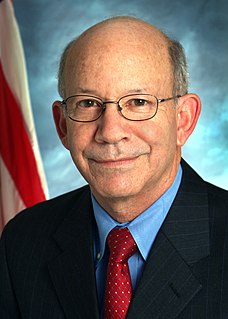Цитата Дугласа Фейта
Уже в середине 90-х было известно, что Саддам Хусейн был опасным тираном, что он уже начал агрессию против Ирана, вторгся в Кувейт.
Связанные цитаты
Трудно сказать, что могло бы произойти с нашим оборонным бюджетом, если бы Саддам Хусейн не вторгся в Кувейт в августе того же года и не заставил всех готовиться ко Второй мировой войне. Можем ли мы рассчитывать на то, что Саддам Хусейн будет приходить каждый год и разрешать наши дебаты по вопросам обороны и политики? Учитывая историю Ближнего Востока, это возможно.
Администрация позаботилась об источнике нестабильности в Ираке. Представьте себе мир, в котором Саддам Хусейн спешил за ядерным оружием, чтобы конкурировать с Ираном. Мое решение убрать Саддама Хусейна было правильным решением, на мой взгляд. Мы не нашли оружия, которое, как мы думали, найдем, или оружия, которое, как все думали, у него есть. Но он был значительным источником нестабильности.
Моя позиция по этому поводу снова и снова и снова искажается в средствах массовой информации. Позвольте мне внести ясность. В Ираке две войны. Первое было абсолютно необходимым и вполне оправданным. Саддам Хусейн напал и вторгся в Кувейт, суверенное независимое государство, это был вопиющий акт агрессии, и действие было оправданным и необходимым. У меня вообще нет проблем с этим.
Когда иракские войска Саддама Хусейна вторглись в Кувейт в 1990 году, я почувствовал, что на карту поставлена приверженность Америки национальным принципам и международному лидерству после окончания холодной войны. Я был встревожен широкой оппозицией среди моих товарищей-демократов. Для меня их позиция была неправильной.
Соединенные Штаты призвали иракцев к восстанию после того, как армия Саддама Хусейна была изгнана из Кувейта. Вашингтон предположил, что Саддам был слаб после поражения в войне в Персидском заливе в 1991 году. Иракцы восстали, но войска Саддама убили тысячи - иракцы говорят, что десятки тысяч - в ходе контрнаступления.
Когда Соединенные Штаты вторглись в Ирак, согласно опросу, проведенному New York Times/CBS News, 42 процента американцев считали, что Саддам Хусейн несет прямую ответственность за теракты 11 сентября во Всемирном торговом центре и Пентагоне. А опрос новостей ABC показал, что 55 процентов американцев считают, что Саддам Хусейн напрямую поддерживает «Аль-Каиду». Ни одно из этих мнений не основано на доказательствах (потому что их нет).


































